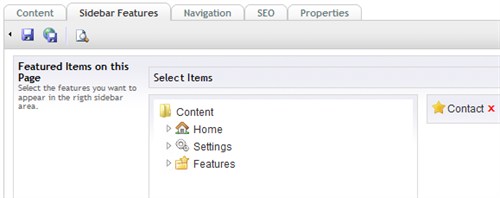Last year, I came across umbraco CMS. First thing I liked about
umbraco - was the interface - clear and simple. I had an
opportunity to create several websites in drupal and umbraco, and
this article is a summary of all my thoughs so far, and yes...
Drupal is Umbraco wannabe!
Umbraco vs Drupal Comparsion
Interface
Umbraco presents much more intuitive interface compared to
drupal. Data is organised in the tree that represents the website
structure. In drupal the entire content is presented in the single
list. It takes a great deal of time to find the parent or
child nodes. Umbraco CMS framework also provides a more convenient
way of controlling what documents can be created under a specific
content. When there are hundreds of pages published on the site, it
becomes almost impossible to track the pages that either appear in
the wrong place or should not be published anymore. And obviously,
in umbraco there is a proper backend admin panel!

Development Time
Both CMS systems are out of the box solutions. However in
Drupal, there is a lot of work involved in getting the website
styled and module installed. Umbraco follows the xml standards and
presents the hierarchical data structure. In other words -
developing the website in drupal is much more time consuming.
Initial drupal installation provides only limited functionality -
and to be honest - it's easy to get lost with permissions and
stuff, when several modules are required. Also, umbraco returns
clean xml, with data only - no <span>s or anything! In Drupal
you get multi dimensional PHP arrays... it's way easier to inegrate
what umbraco returns with flash.
Multiuser support
Both systems support multiuser access. Although, in umbraco that
feature is initially split into members and users.
Multiple-content Picker Module
There is no multicontent picker feature in drupal. There is no
possibility of creating different instances of the sidebar features
etc and letting the user control it on a specific site. In umbraco
user can select and reuse the content an unlimited number of times
in different places throughout the website.

Extending Umbraco/Drupal
Both CMS systems can be extended in terms of functionality.
However since Umbrao is .NET solution, there is a good support of
.NET usercontrols - which allows to extend both front and backend.
PHP as the programming environment in general, hasn't got such
feature. Drupal can be extended by creating a drupal-specific
custom module. Umbraco as the .Net solution, is easier to integrate
with other systems - extensive use of XML, .Net remoting - really
useful for more advanced applications.
Performance
Both CMS systems are large web platforms. .Net solutions perform
better when it comes to high volume of traffic/extensive use.
Design
Umbraco does not limit the design in any way. In drupal there is
no proper backend admin panel - everything is integrated into the
main page. While Umbraco returns a clean data, Drupal automatically
adds javascipt, and html elements - some elements cannot be changed
and often fail the validation. Standards complaint code results in
better multi browser support and SEO indexing. In umbraco, any
visual design can be implemented, including javascript and flash.
Since Drupal adds its own javascipt, there may be some javascipt
conflicts.

Cost
Both systems are open source.
If you want to see how this website takes full advantage
of umbraco, visit how
blue and orange takes full advantage of umbraco.
Tagged: development
development environment
drupal
drupal features
drupal vs umbraco
umbraco
umbraco comparison
web programming
windows development